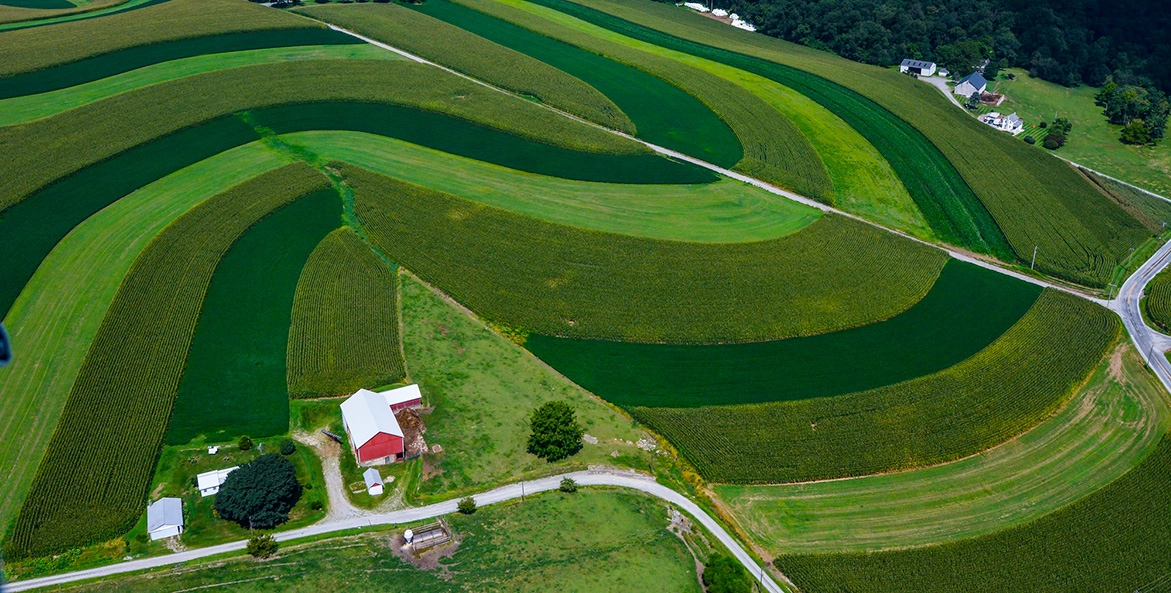This opinion piece was originally published in PA Environment Digest and Bradford New Era.
Liquid manure from Greg Strayer’s beef farm does not threaten the Conodoguinet Creek any longer, thanks to a 185,000-gallon storage area made possible with cost-share funds through Pennsylvania’s Agricultural Conservation Assistance Program (ACAP).
Landmark investments like those for Strayer’s Cumberland County farm are significant down-payments to protect and improve local rivers and streams, health and quality of life, and the economic viability of the family farm.
ACAP was launched by the State Conservation Commission in early 2023. In just over 16 months, more than 280 projects have been completed statewide with ACAP funds since the Pennsylvania General Assembly created the Clean Streams Fund (CSF) in 2022. It was funded initially by a comprehensive package of $220 million in federal investments from the American Rescue Plan.
The fund tackles the top three sources of stream impairment in the Commonwealth: certain agricultural activities, acid mine drainage, and urban/suburban stormwater runoff. It dedicated $154 million to ACAP as investments to be passed through conservation districts to help farmers design and pay the costs of implementing conservation practices.
The Chesapeake Bay Foundation (CBF) is calling on the Governor and legislators to step up to the plate again, by including increased and sustained investments in these programs that help farmers reduce pollution. Join us by emailing your legislators today.
More than 90 percent of the remaining pollution reductions needed to clean streams in the Commonwealth’s portion of the Chesapeake Bay watershed must come from agriculture.
This is a key time for investing in the future of farms and clean water for Pennsylvania as the General Fund budget proposal for fiscal year 2024-25 is now taking shape.
More than 500 conservation projects statewide, totaling more than $73 million, are in the early stages of design, thanks to ACAP. The program has proven extremely popular with farmers, conservation partners, and practitioners, proving that it works and deserves even greater support.
The initial $220 million investment in the CSF will run out in the next few years, and so now is the time for increased and sustained investments to maintain momentum, as Pennsylvania has a lot of work to do to meet its clean water commitments.
More than 90 percent of the remaining pollution reductions needed to clean streams in the Commonwealth’s portion of the Chesapeake Bay watershed must come from agriculture.
Previously, a statewide cost-share program did not exist in Pennsylvania and ACAP’s resiliency is vital. The State Conservation Commission distributes ACAP funds to all 67 counties in the Commonwealth. Importantly under ACAP, project decisions on local agricultural practices to reduce polluted runoff are made locally.
Farmers appreciate the value and importance of keeping soil and nutrients on the land instead of running off into the water. But they cannot be expected to implement needed measures without support.
Greg Strayer figures that it would have taken him 100 years to recoup the $100,000 he would have had to pay out of pocket for the storage area that now protects the local creek.
Strayer has taken other actions to protect local waters. His farm is enrolled in the Natural Resources Conservation Service’s Conservation Stewardship Program and worked with CBF to plant trees on multiple streamside buffers.
The Commonwealth must continue its support of the ACAP so that Pennsylvania’s family farmers may continue to design and install conservation practices to keep soils and nutrients on the land instead of in the water.
A strong Clean Streams Fund and Agricultural Conservation Assistance Program serve to protect the right of every Pennsylvanian to clean air and pure water.
The design of the legislation that created ACAP was a collaborative effort between CBF, the Pennsylvania Farm Bureau, and the Penn State College of Agricultural Sciences. The CSF and ACAP were introduced by State Senator Gene Yaw (R-Lycoming).
The final General Fund budget that reaches the Governor’s desk this summer must include funding that will extend ACAP. It would be a horrible, missed opportunity if ACAP would dissolve should the initial, historic investments be spent by the end of 2026 and not replenished.
At CBF, we look forward to continuing to work with the Governor and legislature to create a legacy of clean water, healthy soils, and resilient communities for future generations.




